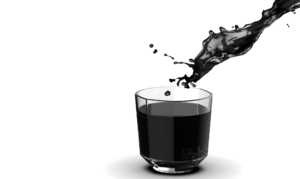Masturbation is a natural and healthy aspect of human sexuality. It is a common topic that often evokes curiosity, interest, and unfortunately, misconceptions. One such misconception is the belief that masturbation can lead to addiction. In this blog, we will explore the difference between masturbation and addiction, shed light on the benefits of masturbation, and debunk common myths associated with this normal sexual activity.
Understanding Masturbation
Masturbation is the act of sexually stimulating oneself, typically resulting in orgasm. It is a natural and instinctual behavior that both men and women engage in, regardless of their age or relationship status. Masturbation allows individuals to explore their bodies, discover their preferences, and learn about their own sexual responses.
Benefits of Masturbation
Stress Relief: Masturbation is an excellent stress-reliever. It stimulates the release of endorphins, which are the body’s natural feel-good hormones. Engaging in masturbation can help alleviate tension, promote relaxation, and provide a sense of overall well-being.
Improved Sleep: Masturbation has been found to aid in better sleep. The release of oxytocin during orgasm promotes feelings of relaxation and contentment, making it easier to fall asleep and experience a more restful night.
Self-Exploration and Body Confidence: Masturbation allows individuals to become more familiar with their bodies and their own sexual desires. It can foster a sense of body acceptance and improve self-confidence in one’s sexual abilities.
Sexual Satisfaction: Masturbation is a safe and reliable way to experience sexual pleasure and achieve orgasm. It can be particularly helpful for individuals who are not in a sexual relationship or whose partner may be unavailable or uninterested in sexual activities.
Understanding Addiction
Addiction, on the other hand, is a complex condition characterized by compulsive and harmful behavior, despite negative consequences. It involves the inability to control or stop engaging in a particular activity, often leading to detrimental effects on various aspects of a person’s life, including relationships, work, and health.
Differentiating Masturbation from Addiction
Frequency and Control: Masturbation, in itself, does not indicate addiction. It becomes a concern when it interferes with an individual’s daily life, relationships, or responsibilities. Addiction, on the other hand, is marked by a loss of control over the behavior, leading to negative consequences.
Emotional and Physical Dependence: Addiction often involves emotional and physical dependence on a substance or behavior. Masturbation, while pleasurable and rewarding, does not lead to a physical or psychological reliance on the act itself.
Dispelling saga about Masturbation
Masturbation Causes Physical or Mental Health Issues: This is a common myth. In reality, masturbation is a normal and healthy sexual activity. It does not cause physical health problems, such as blindness, hair loss, or erectile dysfunction, nor does it lead to mental health disorders.
Masturbation Leads to Decreased Sexual Performance: On the contrary, masturbation can actually have the opposite effect. By exploring one’s own body and sexual responses, individuals can gain a better understanding of their desires and preferences, leading to enhanced sexual experiences with partners.
Masturbation is Only for Single People: Masturbation is not exclusive to single individuals. People in relationships can and do engage in masturbation as a way to explore their own desires, relieve sexual tension, or even enhance intimacy with their partner.
Masturbation is a normal, healthy, and pleasurable sexual activity that provides numerous benefits, including stress relief, improved sleep, and self-exploration. It is essential to differentiate between masturbation and addiction, as they are distinct concepts with separate implications. By dispelling the myths surrounding masturbation, we can foster a better understanding and appreciation for this natural aspect of human sexuality.




